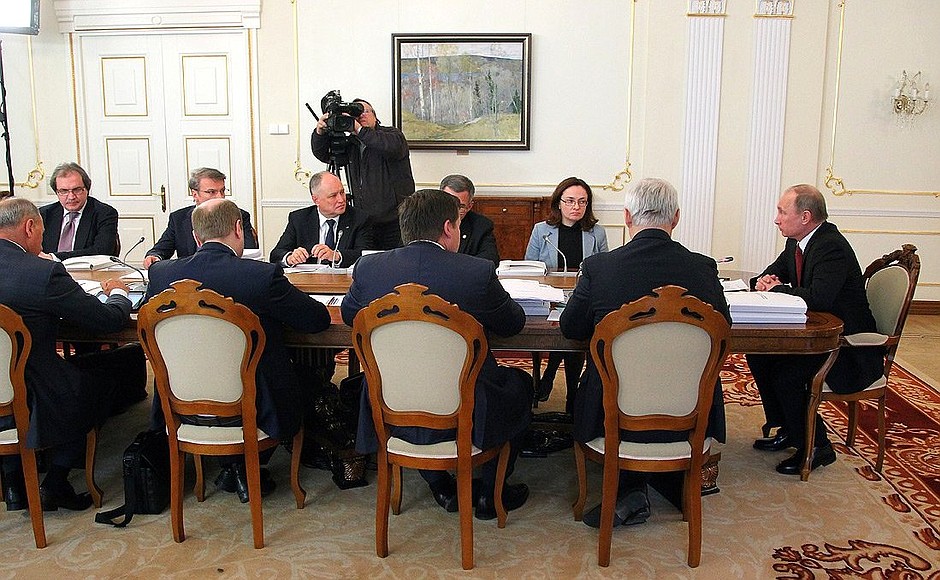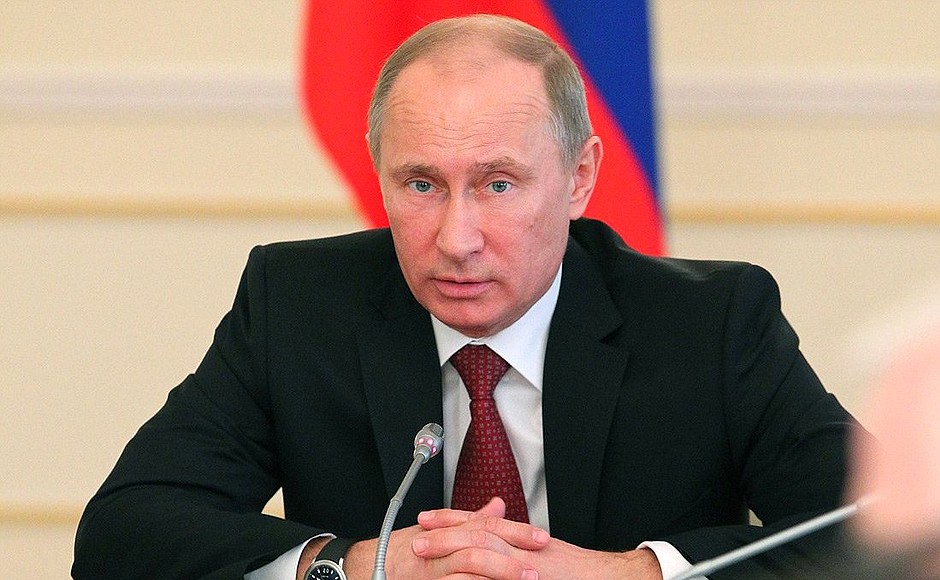The meeting focused on the organisation of a special foundation for the selection and funding of Internet projects and initiatives.
* * *
President of Russia Vladimir Putin: Good afternoon, colleagues,
This is the fifth regular meeting of the Agency for Strategic Initiatives Supervisory Board.
I would like to begin with a few points. First, regarding your efforts to provide assistance to specific projects, I am pleased to say that thanks to your support, dozens of such projects – interesting projects with great potential – have been developed and truly benefited from your backing during the launch, so that now they have moved into the implementation stage.
A State Council meeting at the end of last year discussed ways to improve the investment climate, encourage the flow of investments (primarily to the regions) and the need to build new cooperation networks. The Standard, which was developed jointly with the Agency, has become the reference material for this effort. I hope that it will be implemented across the country and the work in the regions will become a key focus of the Agency’s activities.
Each Russian region has brilliant, talented people and entrepreneurs. Often all they need is minimal assistance to help their businesses take off, to get a successful and productive start.
At the last meeting of the Supervisory Board, I asked you to submit the Agency’s Development Strategy until 2015. It should identify the most promising areas of the Agency’s activity, such as monitoring the implementation of the national entrepreneurial initiative and the search for and advancement of the most successful regional practices to improve the investment climate.
We have discussed this subject a great deal at different venues, including ASI meetings and with business associations. This is one of our main areas of effort, by which I mean that a favourable investment climate is an essential precondition to attracting investment, particularly private investment. That is a key priority of our economic policy, and we have talked about it a great deal. I would ask you to focus special attention on this point.
Our efforts with specific projects must acquire a new quality and become more extensive. Let us discuss all these areas of our work in detail today.
Another important question is the creation of a foundation for the support of entrepreneurial initiatives in the Internet. Its main objectives will be to provide financial and expert assistance to entrepreneurs implementing socially significant online projects and promote the training of young Internet leaders, help them acquire the skills necessary to do business online. We must teach young entrepreneurs how to build high-tech companies, introduce them to the market and make them grow. At the same time, the mechanism of interaction with the authors and initiators of these projects and their contacts with investors should be as transparent as possible.
The new foundation will participate in developing a system that will give everyone the opportunity to take part in this work, to vote with their wallets for the most promising, innovative and creative projects, and the foundation will offer additional support for the best of these projects.
We must see whether our legislation provides sufficient opportunities for effective efforts in this area.
The concept of the foundation’s activities must contain an approach that would guarantee simple and clear interaction between businesses, investors, organisers and administrative bodies. It should provide answers to all the basic questions: What kind of support can one expect from the foundation, where should one apply, and so on and so forth.
As I understand it, the candidates for the posts of chairman of the foundation’s supervisory board and director are present here today. It will be very interesting to hear your proposals and ideas you would like to implement in the course of this collaboration.
A few words about the development of roadmaps. Undoubtedly, this format and this area of work can be considered successful. I think you were very effective in the way you organised your work with business associations, administrative bodies, the Government and the Presidential Executive Office. In all, ten roadmaps have been drafted, six of which have already been approved by the Government and are being implemented. This is a very positive development.
However, I would like to warn against excessive enthusiasm for new ideas. They are certainly necessary but the most important thing is to organise the implementation of projects that are already in the works, projects that have been recognised as viable. We must regularly monitor what is being done and make sure that everything is going to plan. That is an extremely important part of the work that we often overlook. We enjoy generating all sorts of fascinating ideas, but we don’t always have the perseverance, skill and other qualities to bring them to conclusion. But we must do it, otherwise all of our efforts are wasted. I think you will agree that the number of plans will not change the situation. We need real action, as I have said.
I believe that ASI should conduct the monitoring jointly with state agencies and business organisations, do it quickly and predict possible problems that may arise (this is very important), determine how to deal with them efficiently and what can be done to prevent them. To achieve this, you will need to monitor the entire situation, communicate regularly with people like Mr Shokhin [President of the Russian Union of Industrialists and Entrepreneurs], who represents here our largest business association, as well as other colleagues, and above all with businesses and people directly, who can give you feedback about what is going on so that you can respond quickly.
Finally, the Agency works with projects in three areas: business, the social sphere and professional development. Today we will talk about each of these areas and find out what is going on there. Let's get to work.
<…>

